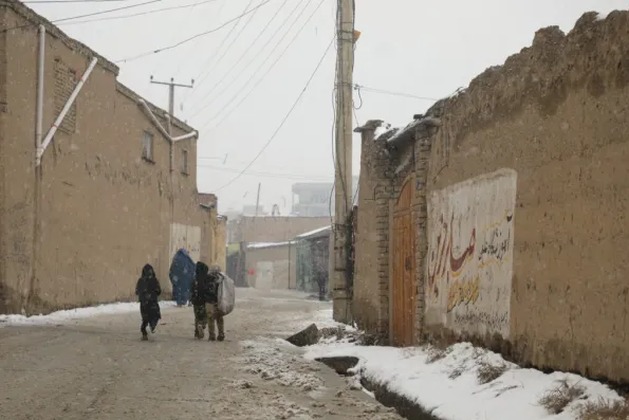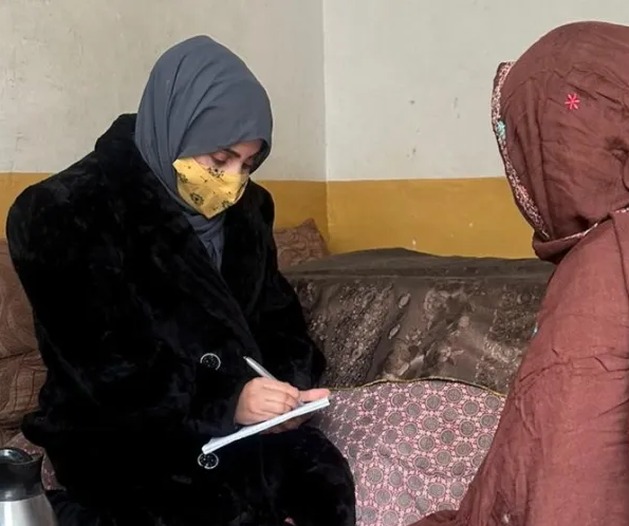Feb 18 (IPS) – The author is an Afghanistan-based female journalist, trained with Finnish support before the Taliban take-over. Her identity is withheld for security reasonsFatima Mohammadi was a manager in a government office in Afghanistan’s Parwan province before the Taliban came to power. But having been forced out of her job she is back home unemployed.
I decided to pay her a visit at her home after several attempts to reach her on phone proved unsuccessful. Later I understood that she was ashamed for her situation and had thus tried to avoid meeting me.
Upon arrival at her home, I was guided into a neatly arranged guest room where we sat next to a window. Her daughter and daughter-in-law also came along to welcome me.
Fatima appeared shortly after carrying a thermos of tea, chocolates and home-baked pies. With a smile, she said, “You remind me of the good days we had”. “Will those days be repeated in our lives again?”, she wondered while taking a seat next to me.
Fatima Mohammadi was referring to the days when she was a manager in a government office in Parwan province. Her department worked to encourage women to take their place in society and contribute to the upkeep of their families. She earned a good salary, lived a comfortable life and was able to support her entire family. But the return of the Taliban upended all that. She is now an unemployed housewife, faced with severe challenges in life.
After seizing back power in August 2021, the Taliban placed severe restrictions on women’s lives with draconian Islamist laws. Women and girls have been banned from having an education, and crucially, they are no longer allowed to take up salaried employment and mainly confined to the house.
Fatima, 43, lives in the centre of Parwan province with a family of six. She holds a bachelor’s degree in Dari language and literature from Parwan University.
She lives in a four-room house with her husband, daughter, son, son-in-law, and grandson.
As the conversation began to pick up, I detected that Fatima was a little ill at ease. She tried to pull herself together but the distress on her face revealed her pain.
“Our economy is deeply in the red”, Fatima opens up. “We cannot afford to buy a bag of flour, and our debts have piled up so, no one is willing to lend us money anymore”, she laments.
She says her family can barely make ends meet from the little income that her son – a former student in the university – earns as a street seller.

The Taliban’s implementation of restrictive Islamist laws over the past three years has had a devastating impact on the physical and mental welfare of women and girls in Afghanistan. They are marginalized in society and, have low expectation of the future.
Fatima’s dire situation is aggravated by the fact that her husband is also out of work, having lost his job as logistics manager in a previous government. It is a reflection of the economic devastation wrought by Taliban rule in Afghanistan, which has created hardship for everyone at large.
“My husband is currently unemployed and stays at home”, Fatima complains. Adding, “His behaviour towards the family has taken a turn for the worse of late; it is not easy to talk to him”. He believes he is a burden on his family, and it feels unbearable.
Fatima recalled her previous life: “When I was a government employee, I worked outside home. Our economy was good and I had a stable mind. There were other programs, which were also sources of good income and my family needs were adequately met.”
“But, now”, she says, “I have lost everything since the return of the Taliban and my mental health is also worsening by the day”.
After spending a few hours talking with her, I returned home with a heavy heart.
© Inter Press Service (2025) — All Rights Reserved. Original source: Inter Press Service




